This AAS Digital Dialogue is second of two webinars held in conjunction with the AAS Film Festival “Re-envisioning Asia: Contestations and Struggles in the Visual Arts”
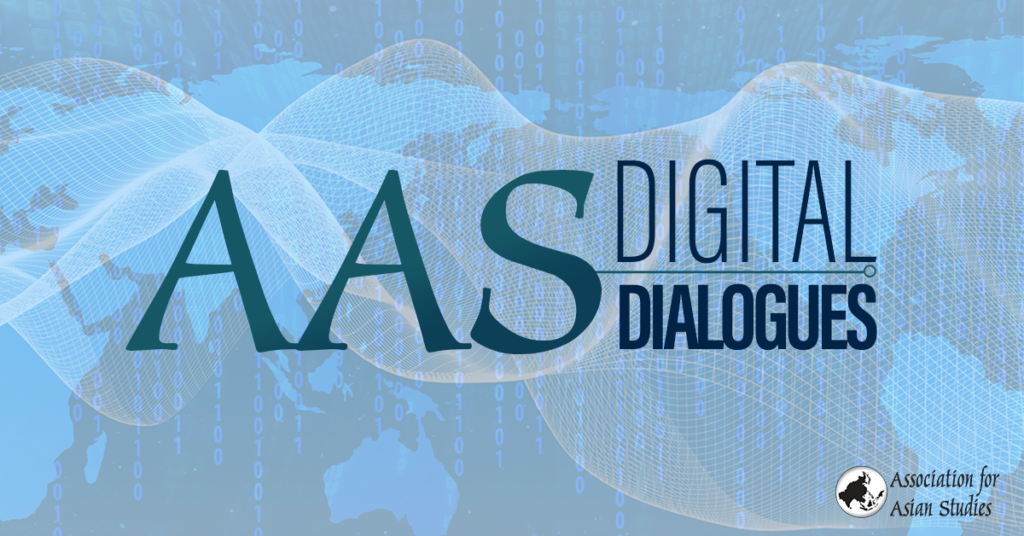
Thursday, September 30, 2021
11:00 AM -12:30 PM Eastern Time
Our second Digital Dialogue held in conjunction with “Re-envisioning Asia: Contestations and Struggles in the Visual Arts” AAS Film Festival. The films discussed in this AAS Digital Dialogues roundtable depict the ongoing violence in places like Indian Kashmir, Sri Lanka, and Myanmar in recent years. A major internal tension in these multi-ethnic and multi-lingual post-colonial states has been the negation of rights of self-determination of nationally non-dominant groups. We saw the violence unleashed by the Pakistani state on its Bengali-speaking citizens during Bangladesh’s war of liberation in 1971. Similarly, we witnessed the continuing military presence in Indian Kashmir, as well as a long and violent internal war in Sri Lanka during the 1980s and 1990s between the state and a faction of its Tamil citizenry. In Myanmar, the military took power in the 1960s and more recently forcefully removed the legitimately elected democratic government of the country. The filmmakers, with sensitivity and a sense of empathy toward their subject matter, allow us to understand the plight of people who are victims of, in most cases, state-sponsored violence in these different locales. By telling stories through music, tracing struggles to retrieve loved ones, or raising their voices to stop violence against women across different communities, the films also leave us with a sense of hope for the future.
This session will feature panelists Iftikhar Dadi, Iffat Fatima, Rares Ghilezan, Jeanne Marie Hallacy, Nant, and Udan Fernando with session chair Kamran Asdar Ali.
Interested in the Film Festival “Re-envisioning Asia: Contestations and Struggles in the Visual Arts”?

Free and open to the public thanks to generous support from the Asian Cultural Council

Session Speakers
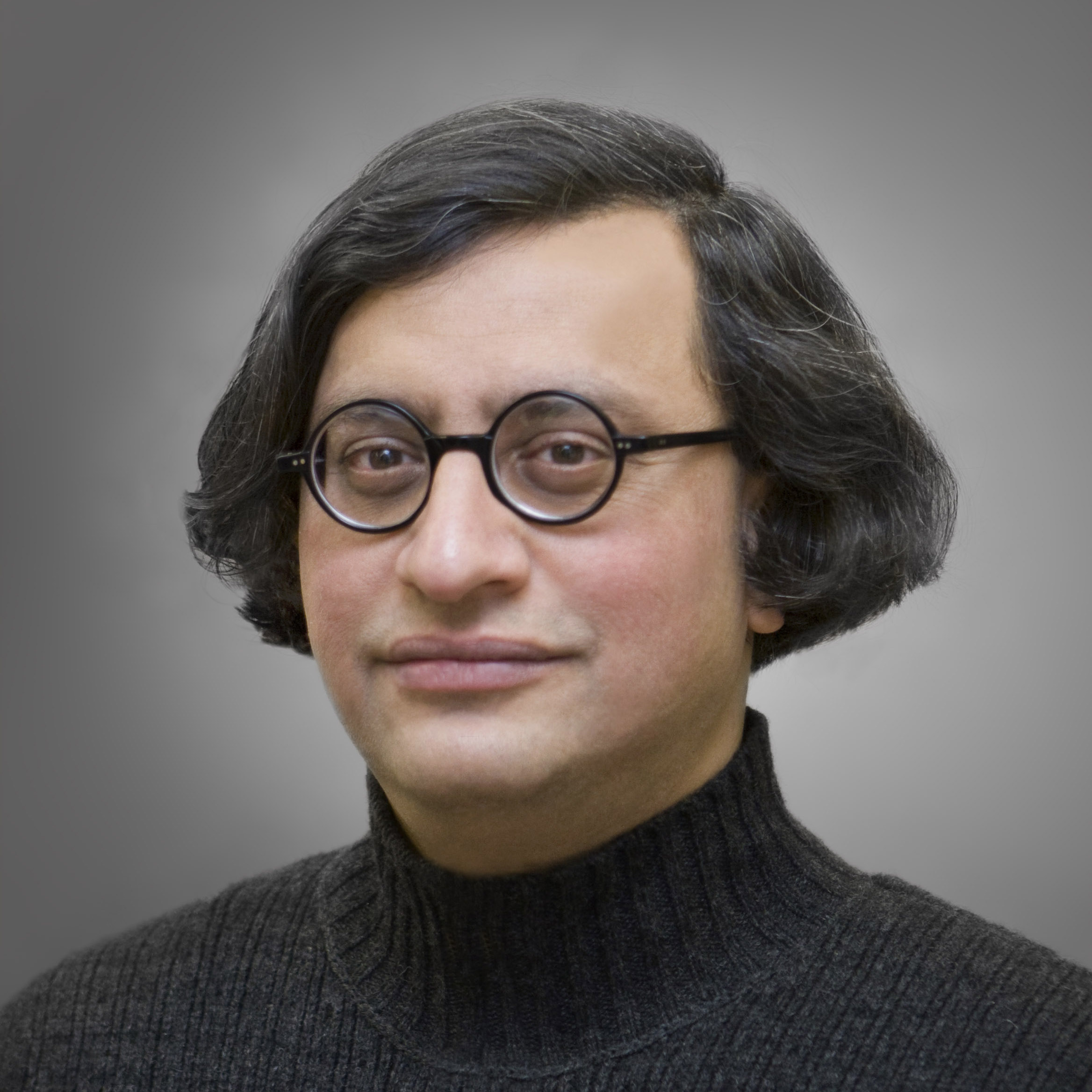
Iftikhar Dadi
Chair, Department of History of Art, Cornell University
Iftikhar Dadi is Professor and Chair of the Department of History of Art, Director of the South Asia Program, and board member of the Institute for Comparative Modernities at Cornell University. He researches modern and contemporary art from a transnational perspective, with emphasis on methodology and intellectual history. His writings have focused on modernism and contemporary practice of Asia and Africa and their diasporas. Another research interest examines the film, media, and popular cultures of South Asia, seeking to understand how emergent publics forge new avenues for civic participation.
Publications include Modernism and the Art of Muslim South Asia (2010), the edited monograph Anwar Jalal Shemza (2015), the co-edited catalog Lines of Control (2012), and the co-edited reader Unpacking Europe (2001). He is an advisor to Asia Art Archive and serves on the editorial advisory board of Bio-Scope: South Asian Screen Studies. As an artist, Iftikhar Dadi collaborates with Elizabeth Dadi. Their practice investigates questions of identity and borders, and the capacities of the informal urban realm across South Asia and the Global South. Their art draws on the tropes of archaeology and media, and critically engages with the legacies of Pop Art, Conceptual Art, and site-specificity.
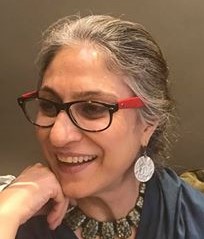
Iffat Fatima
Director of Khoon Diy Baarav (Blood Leaves its Trail) and Lanka- the Other Side of War and Peace
Iffat Fatima is an independent documentary filmmaker and researcher from Kashmir. Since 2006 she is working on the issue of enforced disappearances in Kashmir and her film Khoon Diy Baarav (Blood Leaves its Trail) 2015 explores issues of violence and memory in Kashmir. Her films include, Where Have You Hidden My New Crescent Moon, Lanka- the other side of war and peace; The Kesar Saga, In the Realm of the Visual- Dashrath Patel; Boojh Sakey to Boojh, Her video installation, Ethnography of a European city: Conversations in Salzburg, questions some of the assumptions in the east vs. west polarity/ dichotomy /disparity.
She very recently did the audio visual design for an exhibition Gold Dust Of Begum Sultans. In 2015 she co-edited a compendium Bread Beauty Revolution, Khwaja Ahmad Abbas (1914-1987). In 2004, she completed a Fellowship, Recasting Reconciliation through Culture and the Arts, at the Brandeis University, Boston, USA. In 2001, she was awarded the Asia Fellowship for her work in Sri Lanka, Inter-communal Relations and Education: The Sri Lankan Experience.
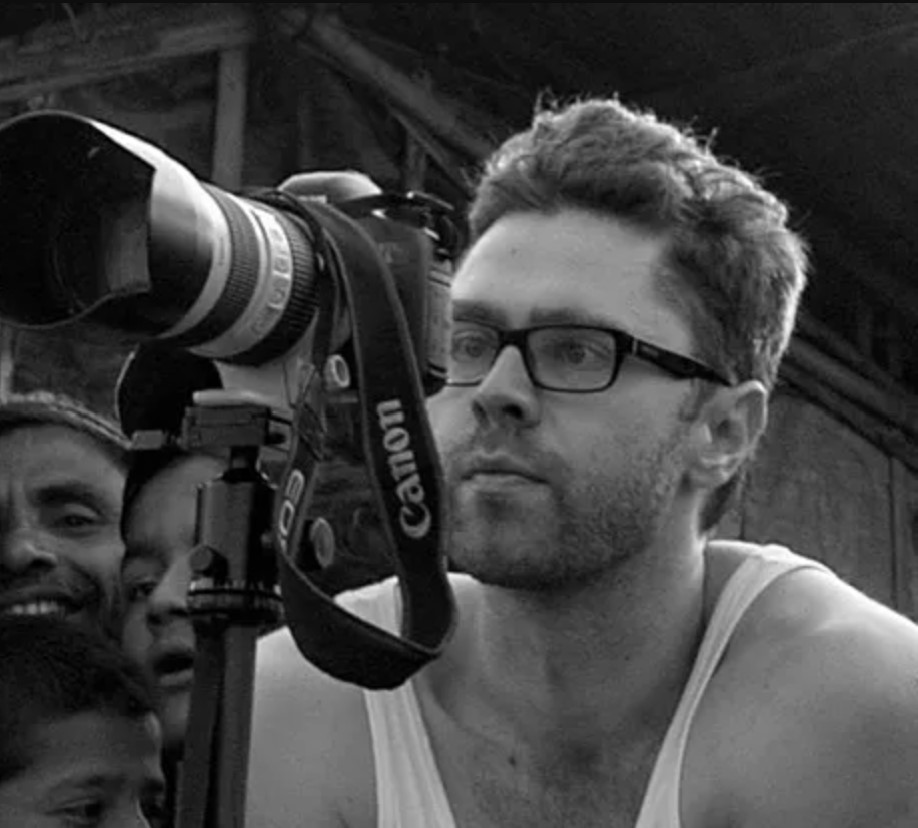
Rares Michael Ghilezan
A long-time student of Burmese politics and history, Rares jumped into the fray in May 2017 when he visited Northern Rakhine state to learn more about the Rohingya. Since then, he has been to the refugee camps in Bangladesh twice, including as a producer on Kirana Productions’ Mother, Daughter, Sister. Rares has lived in Yangon since 2018 where he lead Kirana’s film project covering the protest movement of Feb 2021.
A partner at Global Legal Law Firm, when he’s not filming Rares is either practicing law or surfing. Ever since working at the UN’s Human Rights Council in Geneva in 2006, Rares has been passionate about social justice activism and providing a voice for the voiceless.

Jeanne Marie Hallacy
Director of Padauk: Myanmar Spring, Mother, Daugher, Sister, and Sittwe
Jeanne Marie Hallacy has lived and worked in Southeast Asia for 25 years, producing and directing documentary films about human rights and social justice issues. Her films are used as educational and advocacy tools by civil society and educational institutions.
Mother, Daughter, Sister, Sittwe, This Kind of Love and Into the Current were each released with an international speaking tour in the United States and Europe where the films were screened with engaged audience discussions. Jeanne is also the Director of InSIGHT Out! digital media project for youth in conflict-affected areas. She is the former Director of Programs at the Foreign Correspondents’ Club of Thailand.
Nant
Narrator of Padauk: Myanmar Spring
Nant will discuss how she was swept up in the movement and how the experience has politically awakened her. In Padauk: Myanmar Spring, through Nant, a young, first-time protester, the film follows three human rights activists whose lives have been turned upside down by the coup. As the protests continue, Nant comes to understand the truth of a brutal regime that has continued to wage war against its own people for decades. Against a foreboding backdrop, Nant’s political awakening regarding the plight of others in her ethnically diverse country gives hope for the future.
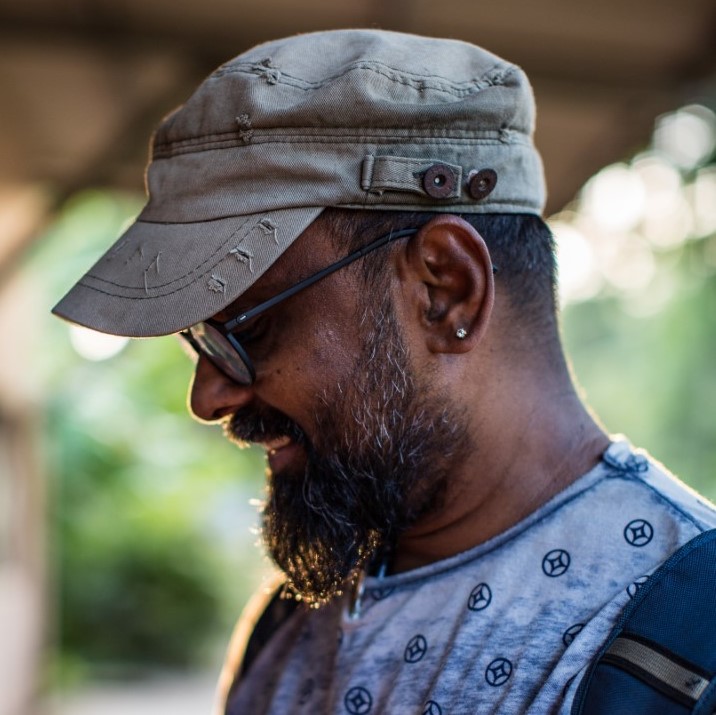
Udan Fernando
Director of A Covid Honeymoon and A Virgin Vote: In a Time of Pandelection
Udan Fernando is a researcher with 30 years of experience in Asia, Africa and Europe. Having read for his PhD at the University of Amsterdam, he worked in the Netherlands for about a decade before he resettled in his country of origin, Sri Lanka, to head a Colombo-based Think Tank. Udan received a Diploma in Cinematography from OCIC, Colombo in 1985 and followed a Short Course on Anthropological Film Making at the University of Amsterdam in 2007. Due to his preoccupation with research and other professional work, Udan had to wait until 2018 to direct a film which was Dwandha (Duel): A Tale of Two Rebels, 50 minutes, English, a documentary based on two years of research in the UK and Australia. Dwandha was screened in Colombo (several times), Jaffna, London, The Hague, New Delhi, Melbourne and Siem Reap. In 2020, Udan directed two short films, a feature and a documentary which will be screened at the AAS Film Festival. Currently, Udan is functions as Head, Colombo Charter, Asian Civil Society Research Network (hosted by the Asia Centre, University of Melbourne) and an Independent Researcher, splitting his time in Sri Lanka and Singapore.
Session Chair
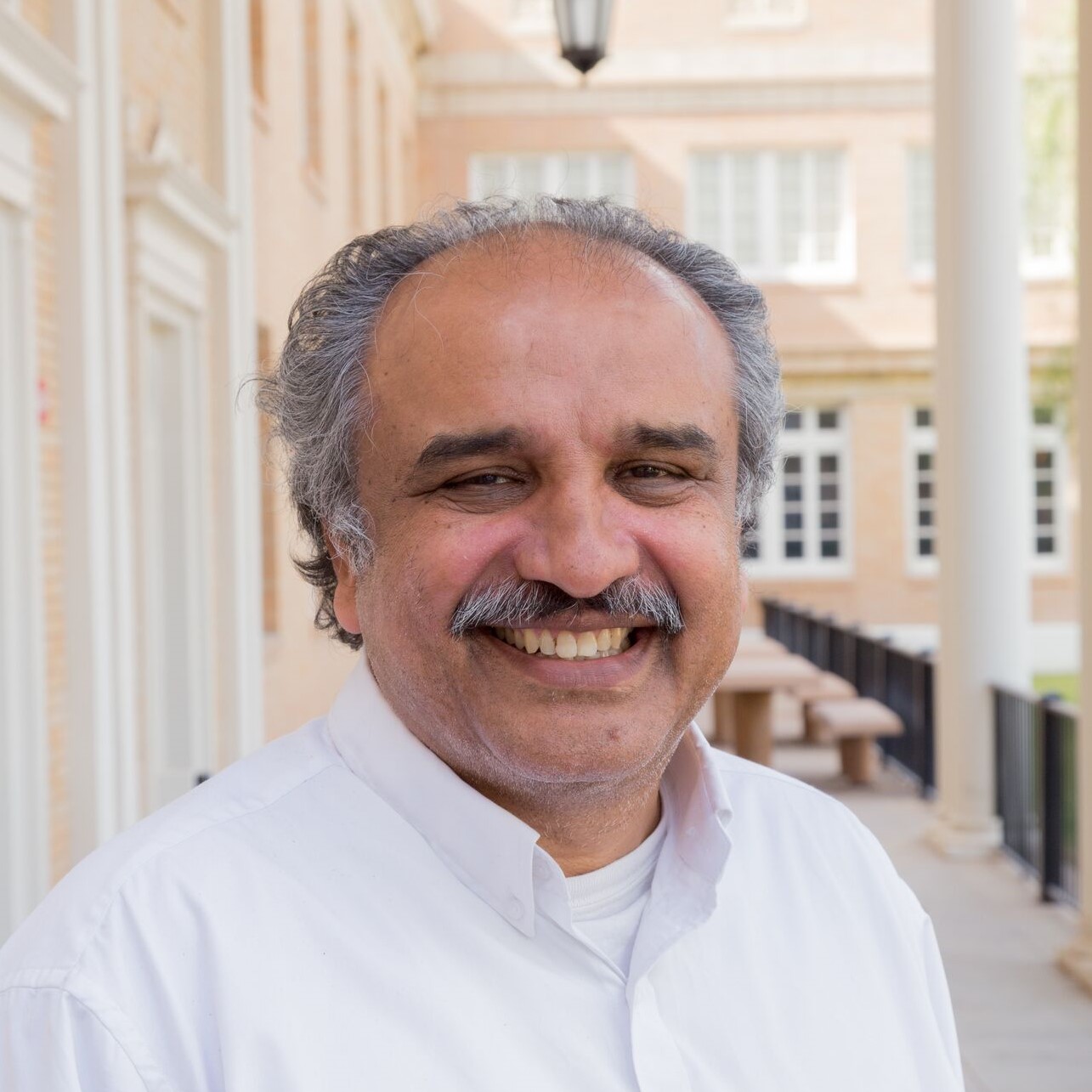
Kamran Asdar Ali
Session Moderator/Chair
Kamran Asdar Ali is AAS Vice-President and Professor of Anthropology, Middle East Studies and Asian Studies at the University of Texas, Austin. His research interests include gender, sexuality, health, political economy, post-colonialism, labor history, and popular culture.

